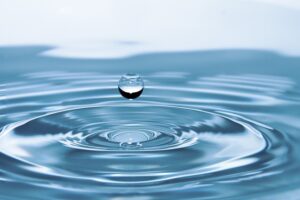
Dry mouth is harmful to your dental health
Anyone can temporarily suffer from a dry mouth, for example after speaking for a long time or during stressful moments. However, it may also happen that you experience long-term or even permanent inconvenience from this problem. Persistent or persistent mouth dryness can be harmful to your teeth and the lining of your mouth.
Saliva production can vary greatly from person to person. On average, a person produces 1 to 1.5 liters of saliva per day.
Common complaints of a dry mouth
You may feel the need to moisten your mouth regularly. This need can occur both during the day and at night. Sometimes it is difficult to swallow dry food unless you drink something with it. In addition, both the lips and tongue may feel tight and sticky. You may also experience problems speaking.
Causes of dry mouth
A lack of saliva is the cause of dry mouth. For example, the salivary glands do not produce enough saliva. Saliva can also dry up due to evaporation when you breathe through the mouth.
Insufficient production of saliva can have several causes:
- Medicines: More than 100 medicines have dry mouth as a side effect.
- Diseases: Diseases such as diabetes mellitus and Sjögren’s syndrome.
- Psychological causes: Such as anxiety or stress.
- Dehydration: Due to insufficient fluid intake.
- Radiation: Irradiation of the head or neck area.
- Hormone balance: Menopausal women often produce less saliva.
Common complaints of a dry mouth
You may feel the need to moisten your mouth regularly. This need can occur both during the day and at night. Sometimes it is difficult to swallow dry food unless you drink something with it. In addition, both the lips and tongue may feel tight and sticky. You may also experience problems speaking.
Causes of dry mouth
A lack of saliva is the cause of dry mouth. For example, the salivary glands do not produce enough saliva. Saliva can also dry up due to evaporation when you breathe through the mouth.
Insufficient production of saliva can have several causes:
- Medicines: More than 100 medicines have dry mouth as a side effect.
- Diseases: Diseases such as diabetes mellitus and Sjögren’s syndrome.
- Psychological causes: Such as anxiety or stress.
- Dehydration: Due to insufficient fluid intake.
- Radiation: Irradiation of the head or neck area.
- Hormone balance: Menopausal women often produce less saliva.
Medical treatment
There is a medicine available through the doctor that increases the secretion of exocrine glands, including the salivary glands. This will increase saliva production and improve dry mouth complaints. Treatment with this medicine is only considered by the doctor for complaints that cannot be treated locally with artificial saliva, because of the many unpleasant side effects that can occur due to this medicine.
Treatment with artificial saliva
Artificial saliva is a saliva replacement product. The use of artificial saliva often provides relief from complaints for about two hours. Artificial saliva has hardly any side effects. There are various products available without a prescription, such as Biotene Oral Balance or Dentaid Xeros in the form of gel or spray. Apply approximately two centimeters of gel to the tongue with your finger and distribute throughout the mouth. Use it especially before going to sleep. This will make the mucous membranes feel moister. To obtain immediate relief from a dry mouth during the day, it is better to use a spray. However, there are several specialty products available on the market.
Natural remedies for dry mouth
- Salt: Rinsing your mouth with saline solution has a moistening effect on the oral mucosa. If necessary, you can rinse several times during the day and also at night for 1 minute. Salt retains moisture, causing dry mouth complaints to temporarily reduce or disappear. A good ratio for making a saline solution is 1 teaspoon of salt to a glass of water. Be careful not to swallow the saline solution, as too much salt in the body can actually worsen the problem of dry mouth.
- Acidic products: Chewing and eating acidic products stimulates saliva production. Chewing gum containing Xylitol, vitamin C lozenges, eating cucumber, apple and fresh pineapple and drinking fruit juice and tea with lemon can help.
- Water: Drink plenty of water.
- Spicy spices: Spices, including cayenne pepper and ginger, increase saliva production.